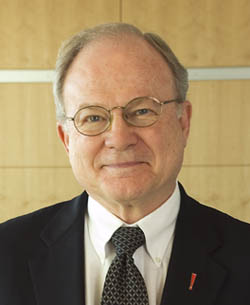Message from IUSTI President
Greetings,
I am pleased to welcome you to the 12th IUSTI World Congress in stunning New Delhi, India, one of the oldest existing cities in the world. I hope you get a chance to enjoy the beautiful historical architecture of the city and of course the food – one of the five greatest cuisines of the world.
When I first attended a conference in this region a few years ago the text books described five “venereal diseases” (syphilis, gonorrhea, chancroid, lymphogranuloma venereum, granuloma inguinale and were using a very new progressive term – “Sexually Transmitted Infections” to also include genital herpes and a still idiopathic syndrome – nongonnococcal urethritis. Today there are at least 35 sexually transmitted pathogens, which cause at least 35 different syndromes affecting at least 10 organ systems. The scope of diagnostic, therapeutic and prevention interventions and strategies is growing equally. Control of these infections and achieving sexual health now requires a coordinated, interdisciplinary approach.
The IUSTI promotes collegiality, and coordination of efforts globally, regionally and nationally through its World Congress, Regional Branch Congresses, and affiliated national societies. The IUSTI brings together leading authorities to guide professionals from multiple disciplines and affected communities in understanding, prioritizing and implementingthe best practices for STI/HIV treatment, care and prevention. Treatment, care and prevention vary incredibly across regions, and even within nations. One size doesn’t fit all, and context specific differences in approaches are inevitable and often appropriate. However a global meeting comparing different approaches across different regions and different populations can inform us all; this is an explicit goal and benefit of the New Delhi IUSTI World Congress.
Congress participants tend to focus more and more narrowly today on presentations within their own disciplines and from their own regions. My advice is to try the opposite; you may learn much more of value by hearing how things are done in other settings and other disciplines. For example, India is one of the most innovative societies in the world; learn about the Avahan Targeted Intervention in India to understand what the new term “program science” means and how it can contribute to improving our STI programs globally. Consider what good or harm might come from adopting unique interventions from other settings. How do we replicate the best of the best, sooner rather than later, in our own practice? How can we expedite and evaluate implementing new approaches, with a philosophy of “risk management” rather than “risk aversion”? For example, can we learn from Australia about how to implement “opt out” vaccination against one of the most important STIs of our era – HPV infection – rather than sitting by and grumbling about lack of public support for HPV vaccine?
I would like to thank the NIH Office of Research for their generous contribution in support of this Congress, and other donor agencies including the World Health Organization and Indian Council for Medical Research. I would also especially like to thank Dr. Somesh Gupta for organizing this Congress in conjunction with the Indian Association for the Study of STD and AIDS, BASHH, ASTDA, ASHA and the AIDS Society of India. Co-chairs Charlotte Gaydos and Robert Bollinger and the International Scientific Committee have worked hard in organizing the symposia, workshops, and plenaries, and we hope you find them enlightening and useful. We hope this congress provides many opportunities for new collaborations to promote global sexual health. The theme of this Congress “Promoting Sexual Health: Basic Science to Best Practices” emphasizes the critical importance of collaboration between researchers and clinicians. The Congress will focus on important epidemiologic findings, advances in diagnostic methods, challenges and new opportunities for treatment of STI, including HIV infection, new prevention strategies, and on integration of vertical programs with cross-cutting programs, and will examine future directions in sexual and reproductive health. The Congress will emphasize sexual health issues involving marginalized and vulnerable populations such as sex workers, MSM, WSW, and transgender individuals.
It is vital that we work together to take important discoveries and evidence gained from basic science and clinical research and adapt them into best practices in clinical and community settings. This involves working together to advocate for enabling policy, development of related guidelines and community support, training for workforce development, task-sharing across our professional disciplines, implementation of program changes and strengthening and then monitoring and evaluating the quality, coverage, and impact of improved practices.
Enjoy the Congress!

King K. Holmes, MD, PhD
IUSTI President
